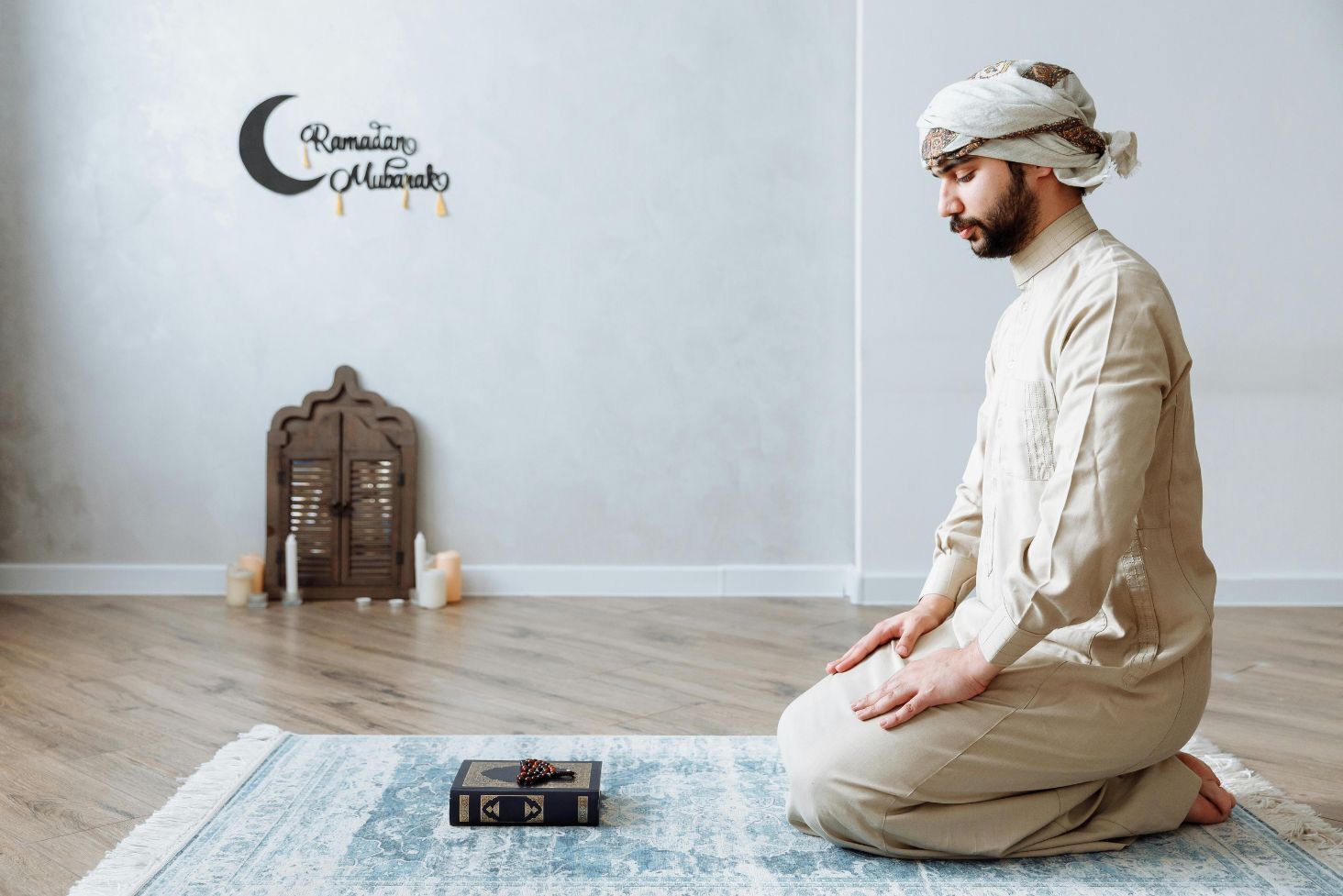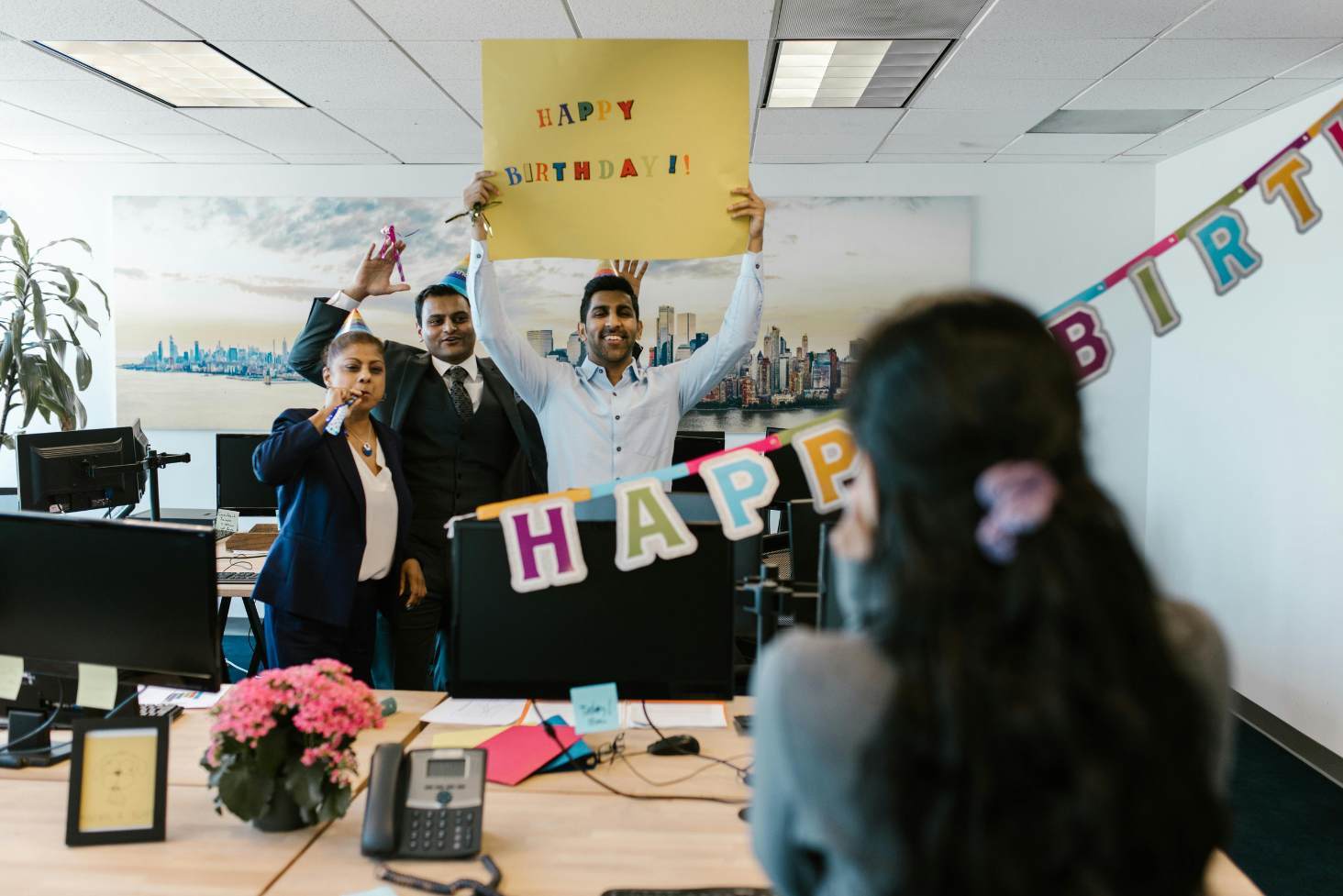
Did you know that Islam is the second most widely observed faith in the UK? Over three million people living in the UK are Muslim and take part in the holy month of fasting known as Ramadan. If you are running a business in the UK, there is a good chance that someone in your team is celebrating Ramadan, so understanding the events are crucial in fostering an inclusive workplace.
I spoke to a member of our own team, Muhammad Ali and his wife, Anusheh Nasir, who celebrate Ramadan, about the holy month and how employers can use reasonable adjustments to support their Muslim employees.
What is Ramadan?
Ramadan is the ninth month of the Islamic lunar calendar and a time for spiritual reflection. The holy month lasts between 29 and 30 days, depending on whether the crescent moon is seen after sunset on the 29th day; if there is no sighting, a further day is observed. At the end of Ramadan, the celebration of Eid al-Fitr (or Eid, as it's commonly referred to) signifies the end of the month-long dawn-to-sunset fasting of Ramadan.
Many outside of the religion are more familiar with the fasting element of the celebration, where people strictly refrain from eating or drinking between dawn and dusk as a way of coming together spiritually with those less fortunate. Before sunrise, a healthy meal called Sahoor is eaten to nourish throughout the day, and after the sun sets, friends, family, and communities gather for Iftar, a meal to break the fast. While Iftar is a significant meal, Muslims can eat and drink freely throughout the night until Suhoor begins again. This period is followed by a night prayer, called Tarawih.
Anusheh explains, "Ramadan is a time for spiritual growth for Muslims. We keep our worldly desires at bay by practising self-control through fasting and remaining conscious of God, prayer, and involvement with our communities."
Prayer is an essential part of Ramadan and one of the five pillars of Islam, known as Salah. Muslims are required to pray five times daily throughout the month, with the Tarawih as an additional communal prayer each night.
How to make your workplace flexible during Ramadan
Leave requests
For a motivated and productive team, exercising flexibility during Ramadan is essential. Where possible, allow some flexibility with leave during the month and plan staffing levels with the expectation that certain times may be popular for leave requests. During the last ten days of Ramadan, some team members may take time off for more prayer, especially if their shifts often fall at night.
Eid al-Fitr is also a popular time for Muslims to take vacation days or seek time off work. This allows them to celebrate the end of Ramadan with family, friends, and community. It is important to remember that Eid is determined by the moon sighting, so team members may take a couple of days off or put in a last-minute request. Anusheh points out that employers should be mindful of circumstances if they are considering denying a leave request around Eid, "Denying a leave request around Eid may negatively impact a team member's job satisfaction, they may even consider the sentiment behind the denial if a reasonable conversation does not take place."
Offer flexible hours and remote working
You may wish to offer more flexible work schedules during the month to accommodate your team member's prayer times, particularly if they work shifts at night. Additionally, fasting can take a toll on staff members physically and mentally, and customising their workday could be extremely beneficial for productivity and morale as it keeps staff members achieving their goals. For the same reasons, remote working could be a great option if such an arrangement is suitable.

What else is there to consider in the workplace?
Communication
Educating the rest of your team on Ramadan is a great first step in creating a supportive and accommodating environment for the short period where routines might vary slightly. It is just as important to know how and why people celebrate Ramadan as it is to know about the month itself. Speak with the employees who are celebrating Ramadan and ask them how best to communicate the celebration with the rest of your team, also feel free to share this guide if you get stuck.
Creating a prayer space
Due to various factors, Muslims may celebrate differently from person to person. Some may pray five times daily throughout the year, and others may choose to partake in prayer through Ramadan, and this is a personal choice. If you have a spare room in your workplace that can be used as a prayer room, this could be a great way to support your team members and help them maintain a regular routine through Ramadan; it may even become a permanent part of your workplace.
A clean, private space that can accommodate each Muslim team member at once is a great start as a calm and peaceful space will invoke tranquility, one of the goals of prayer. Be mindful that men and women may need to pray in separate rooms at the same time of day, so if two spaces are available, this is even better.
Remember the fast throughout the day
Celebrating with food is a big part of all cultures, but during this time, your Muslim co-workers are probably feeling quite hungry and thirsty throughout the day. Avoid food-centric celebrations where possible. That's not to say you must hide all food for a month, but fasting can be testing enough without the distinct scent of an office pizza day travelling through the corridors.
Fasting can make people feel energised but can make others feel less-than-ideal, especially if water is not permitted. People's bodies react differently to changes when fasting, particularly if there is a medical condition that may or may not be known to them. Be sure to respectfully look out for the wellbeing of your fasting team members through Ramadan and have an emergency plan in place if someone falls ill.
In acknowledging that fasting can impact a team member's energy levels, be sure to offer support in any way possible so that your team members can continue to perform well throughout the month.
Key takeaways
The Muslim community make up such an important part of our workforce and economy in the UK, and creating a supportive environment during Ramadan demonstrates a commitment to inclusivity. By understanding the significance of the month-long celebration and making any reasonable adjustments to facilitate it, you will retain a dedicated and productive team that gives back even more because they feel that their culture is valued in their workplace.
Many thanks to Muhammad and Anusheh for their valuable contribution to this article and Ramadan Mubarak to everyone who is celebrating.



